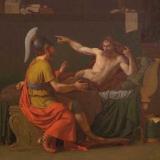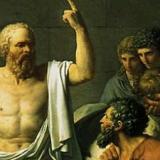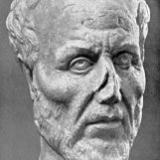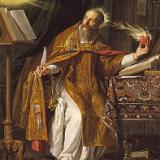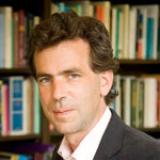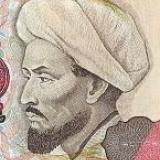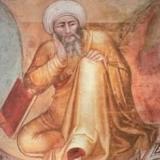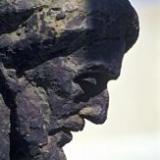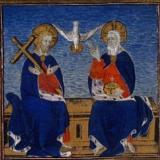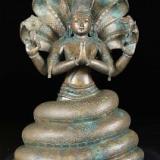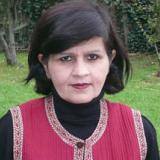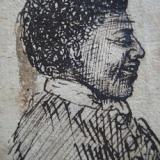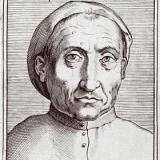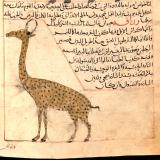Mind
Posted on
Peter discusses Anaxagoras, focusing on his theory of universal mixture ("everything is in everything") and the role played by mind in Anaxagoras' cosmos.
Posted on
In the Phaedo, Plato depicts the death of Socrates, and argues for two of his most distinctive doctrines: the immortality of the soul and the theory of Forms.
Posted on
Peter tackles the De Anima (“On the Soul”), focusing on the definition of soul as the form of the body and Aristotle’s theory of sensation.
Posted on
Drawing on the De Anima, On the Heavens, Physics and Metaphysics, Peter tackles Aristotle’s theory of mind and its relation to his theology.
Posted on
Plotinus posits an absolutely transcendent first principle, the One. What is it (or isn’t it), and how does it relate to Intellect?
Posted on
Augustine explores the nature of the human mind in order to establish its similarity to, and dissimilarity from, the divine Trinity.
Posted on
In a final episode on Augustine, Charles Brittain joins Peter to discuss the theory of mind presented in "On the Trinity".
Posted on
Peter begins to look at the systematic rethinking of Hellenic philosophy offered by al-Fārābī, focusing on his logic and metaphysics.
Posted on
You know what I'm thinking: Averroes' rather surprising notion that all humankind shares a single intellect.
Posted on
Neoplatonism returns in Ibn Gabirol (known in Latin as Avicebron), who controversially holds that everything apart from God has both matter and form.
Posted on
Discussion, debate and denunciation of philosophical attempts to explain the Trinity in Abelard, Richard of St Victor and Bernard of Clairvaux.
Posted on
John Blund and William of Auvergne draw on Aristotle and Avicenna to argue that the soul is immaterial and immortal.
Posted on
Henry of Ghent, now little known but a leading scholastic in the late 13th century, makes influential proposals on all the debates of his time.
Posted on
The oldest treatise of Sāṃkhya enumerates the principles of the cosmos and of the human mind.
Posted on
Yoga as presented by Patañjali offers a practical complement to the Sāṃkhya theory of the cosmos and the self.
Posted on
Nyāya proposes that each of us has both a self and a mind, in addition to the body.
Posted on
How the language of thought relates to spoken and written language, according to William of Ockham.
Posted on
An interview with Susan Brower-Toland covering Ockham's views on cognition, consciousness, and memory.
Posted on
Pāyasi and the Cārvāka anticipate modern-day theories of mind by arguing that there is no independent soul; rather thought emerges from the body.
Posted on
Monima Chadha takes Peter through Buddhist-Hindu debates over mind and self.
Posted on
Vasubandhu’s path to Yogācāra Buddhism, a form of idealism which holds that nothing can be mind-independent.
Posted on
The great Buddhist thinker Dignāga argues that general concepts and language are mere constructions superimposed on perception.
Posted on
Dietrich of Freiberg, Berthold of Moosburg, John Tauler and Henry Suso explore Neoplatonism and mysticism.
Posted on
Dignāga argues that all perception is accompanied by self-awareness.
Posted on
Buddhaghosa, a major figure in the history of Buddhism in Sri Lanka, argues against the need for a self to control and coordinate mental activities.
Posted on
Three guests to celebrate 300 episodes! Rachel Barney, Christof Rapp, and Mark Kalderon join Peter to discuss the importance of ancient philosophy for today's philosophers.
Posted on
Peter King, Catarina Dutilh Novaes, and Russ Friedman discuss their approaches to medieval philosophy and its contemporary relevance.
Posted on
Anton Wilhelm Amo, brought to Germany from his native Ghana, defends a rigorous dualism of mind and body. Was this philosophy connected to his African origins?
Posted on
Justin E.H. Smith joins us to discuss Anton Wilhelm Amo against the background of ideas about race in early modern philosophy, including Leibniz.
Posted on
Marsilio Ficino’s revival of Platonism, with a focus on his proofs for the soul’s immortality in his magnum opus, the Platonic Theology.
Posted on
Jewish philosophers in Renaissance Italy, focusing on Leone Ebreo’s Dialogues of Love, the Averroism of Elijah del Medigo, and Italian Kabbalah.
Posted on
Pietro Pomponazzi and Agostino Nifo debate the immortality of the soul and the cogency of Averroes’ theory of intellect.
Posted on
In this second of four bonus episodes on animals and Islamic philosophy, Peter talks about the standard view that reason differentiates humans from animals, and challenges posed to this view from medical theory and Islamic theology.
These episodes draw on work done with the support of the project “Animals in the Philosophy of the Islamic World”, which has received funding from the European Research Council (ERC), under the European Union’s Horizon 2020 research and innovation programme (grant agreement No. 786762).

